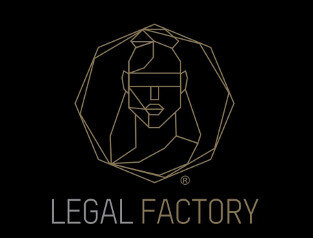Best Drug Crime Lawyers in Italy
Share your needs with us, get contacted by law firms.
Free. Takes 2 min.
Or refine your search by selecting a city:
List of the best lawyers in Italy
About Drug Crime Law in Italy
Drug crime law in Italy is primarily governed by policies established to regulate the prevention, treatment, and suppression of drug-related activities. Italy adheres to both national legislation and international regulations, with a classification system distinguishing between hard and soft drugs. The Italian legal framework includes criminal laws that penalize the illegal production, trafficking, and possession of drugs. While drug use itself has been decriminalized, associated activities such as possession for personal use are subject to administrative sanctions which can include fines or mandatory rehabilitation programs. Efforts are also placed on rehabilitation, prevention, and harm reduction to address issues related to drug dependency.
Why You May Need a Lawyer
Individuals may find themselves in need of a lawyer specializing in drug crime for several reasons, including being arrested or charged with possession, trafficking, or distribution of illegal substances. Legal assistance is crucial in navigating the complexities of drug laws, negotiating plea bargains, and advocating for lesser charges. A lawyer can also offer guidance in cases involving searches and seizures, ensuring the client's rights are protected. Moreover, individuals facing administrative sanctions for personal drug use might require advice on compliance or contesting decisions.
Local Laws Overview
In Italy, the Consolidated Law on Narcotic Drugs and Psychotropic Substances (Testo Unico) classifies substances based on their potential harm. Possessing small quantities of drugs for personal use is not a criminal offense but can incur administrative penalties such as license suspension or travel bans. Law enforcement has broad discretion to assess whether an amount exceeds personal use, falling into trafficking charges. Additionally, harsher penalties are imposed for dealing drugs near schools or involving minors. Rehabilitation efforts and harm reduction initiatives are key components of Italy's approach, often resulting in alternatives to incarceration.
Frequently Asked Questions
What is considered personal possession in Italy?
Personal possession is defined by specific thresholds for each drug type. Authorities assess intent based on quantity, packaging, and contextual evidence.
Can I be arrested for using drugs in Italy?
Using drugs is decriminalized; however, associated activities may lead to administrative penalties rather than arrest.
What are the penalties for drug trafficking in Italy?
Penalties for drug trafficking are severe, with potential jail time ranging from 6 to 20 years, depending on the substance and circumstances.
How does the law differentiate between soft and hard drugs?
Drugs are categorized by their potential for harm and abuse, with softer drugs like cannabis facing lighter penalties compared to harder drugs such as heroin or cocaine.
Is medical use of cannabis allowed in Italy?
Yes, medical cannabis is legal and available under prescription for specific conditions such as chronic pain or certain neurological disorders.
What happens if I refuse to pay an administrative fine for drug possession?
Refusal to comply with an administrative sanction may escalate to further legal actions, including potential judicial proceedings.
Can foreign nationals be deported for drug offenses in Italy?
Yes, foreign nationals convicted of certain drug offenses may face deportation, especially for serious crimes like trafficking.
What role does rehabilitation play in drug-related legal issues?
Rehabilitation is a significant component, offering alternatives to incarceration such as mandatory treatment programs for offenders.
Are there legal defenses against drug charges in Italy?
Common defenses include challenging the legality of a search, contesting the intent, or the validity of the substance's classification.
How long does a drug crime conviction stay on my record in Italy?
Convictions typically remain for a set period but may be expunged under particular circumstances, depending on the offenses and subsequent behavior.
Additional Resources
For further assistance, individuals can turn to government institutions like the Ministry of Justice, local Legal Aid Offices, or private law firms specializing in drug crime. Organizations such as the Italian Civil Liberties Union and Anti-Drug Networks offer support and advocacy. The European Monitoring Centre for Drugs and Drug Addiction provides comprehensive data and policy guidelines, beneficial for understanding broader regional implications.
Next Steps
If seeking legal assistance, it is advisable to consult with a qualified attorney experienced in drug crime law. Gather relevant documents and evidence related to your case to present a comprehensive overview during legal consultations. Consider reaching out to local bar associations for referrals or avail yourself of legal aid services if financial constraints are a concern. Prompt action can significantly impact the outcome of any legal proceedings related to drug crime.
Lawzana helps you find the best lawyers and law firms in Italy through a curated and pre-screened list of qualified legal professionals. Our platform offers rankings and detailed profiles of attorneys and law firms, allowing you to compare based on practice areas, including Drug Crime, experience, and client feedback.
Each profile includes a description of the firm's areas of practice, client reviews, team members and partners, year of establishment, spoken languages, office locations, contact information, social media presence, and any published articles or resources. Most firms on our platform speak English and are experienced in both local and international legal matters.
Get a quote from top-rated law firms in Italy — quickly, securely, and without unnecessary hassle.
Disclaimer:
The information provided on this page is for general informational purposes only and does not constitute legal advice. While we strive to ensure the accuracy and relevance of the content, legal information may change over time, and interpretations of the law can vary. You should always consult with a qualified legal professional for advice specific to your situation.
We disclaim all liability for actions taken or not taken based on the content of this page. If you believe any information is incorrect or outdated, please contact us, and we will review and update it where appropriate.
Browse drug crime law firms by city in Italy
Refine your search by selecting a city.
















